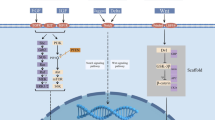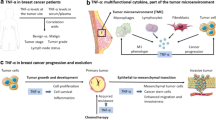Abstract
Postmenopausal women with estrogen receptor positive (ER+) breast cancer frequently respond paradoxically to estrogen administration with tumor regression. Using both LTED and E8CASS cells derived from MCF-7 breast cancer cells by long-term estrogen-deprivation, we previously reported that 17β -estradiol (estradiol) is a powerful, pro-apoptotic hormone which kills the cancer cells through activation of the Fas/FasL death receptor pathway. We postulated that the mitochondrial interactive protein Bcl-2 might play a role in the regulation of estradiol-induced apoptosis in both LTED and E8CASS cells. In this study, we assessed estradiol effects on cell growth, proliferation and apoptosis. Additionally we investigated the effect of estradiol on caspase activation, NF-KB and Bcl-2 expression. The functional role of Bcl-2 in estradiol-induced apoptosis was further studied by knockdown or decrease of Bcl-2 with siRNA. Our results show that estradiol significantly inhibited cell growth primarily through a pro-apoptotic action involving caspase-7 and 9 activations (p < 0.01). Basal Bcl-2 and NF-KB levels were greatly elevated and estradiol decreased NF-KB, but not Bcl-2 expression. Knockdown of Bcl-2 expression with siRNA decreased the levels of this protein by 9 fold (p < 0.01). This reduction markedly sensitized both LTED and E8CASS cells to the pro-apoptotic action of estradiol, leading to a synergistic induction of apoptosis and a concomitant reduction in cell number (p < 0.01). Therefore, down-regulation of Bcl-2 synergistically enhanced estradiol-induced apoptosis in ER+ postmenopausal breast cancer cells.
Similar content being viewed by others
References
Kennedy BJ. Massive estrogen administration in premenopausal women with breast cancer. Cancer 1962; 15: 641–648.
Lonning PE, Taylor PD, Anker G, et al. High-dose estrogen treatment in postmenopausal breast cancer patients heavily exposed to endocrine therapy. Breast Cancer Research and Treatment 2001; 67: 111–116.
Ingle JN, Ahmann DL, Green SJ, Edmonson JH, Rubin J, Frytak S. Randomized clinical trial of diethylstilbestrol versus tamoxifen in postmenopausal women with advanced breast cancer. New England Journal of Medicine 1981; 304: 16–21.
Peethambaram PP, Ingle JN, Suman VJ, Hartmann LC, Loprinzi CL. Randomized trial of diethylstilbestrol vs. tamoxifen in postmenopausal women with metastatic breast cancer. An updated analysis. Breast Cancer Research and Treatment 1999; 54: 117–122.
Ingle JN. Estrogen as therapy for breast cancer. Breast Cancer Res. 2002; 4: 133–136.
Soule HD, Vazguez J, Long A, Albert S, Brennan M. A human cell line from a pleural effusion derived from a breast carcinoma. Journal of the National Cancer Institute 1973; 51: 1409–1416.
Katzenellenbogen BS, Kendra KL, Norman MJ, Berthois Y. Proliferation, hormonal responsiveness, and estrogen receptor content of MCF-7 human breast cancer cells grown in the short-term and long- term absence of estrogens. Cancer Res 1987; 47: 4355–4360.
Masamura S, Santner SJ, Heitjan DF, Santen RJ. Estrogen deprivation causes estradiol hypersensitivity in human breast cancer cells. J Clin Endocrinol Metab 1995; 80: 2918–2925.
Sonnenschein C, Szelei J, Nye TL, Soto AM. Control of cell proliferation of human breast MCF7 cells; serum and estrogen resistant variants. Oncol Res 1994; 6: 373–381.
Song RX, Mor G, Naftolin F, et al. Effect of Long-Term Estrogen Deprivation on Apoptotic Responses of Breast Cancer Cells to 17 beta -Estradiol. Journal of the National Cancer Institute 2001; 93: 1714–1723.
Song RX, Santen RJ. Apoptotic action of estrogen. Apoptosis 2003; 8: 55–60.
Liu H, Lee ES, Gajdos C, et al. Apoptotic action of 17beta-estradiol in raloxifene-resistant MCF-7 cells in vitro and in vivo. Journal of the National Cancer Institute 2003; 95: 1586– 1597.
Osipo C, Gajdos C, Liu H, Chen B, Jordan VC. Paradoxical action of fulvestrant in estradiol-induced regression of tamoxifen-stimulated breast cancer. Journal of the National Cancer Institute 2003; 95: 1597–1608.
Campbell RA, Bhat-Nakshatri P, Patel NM, Constantinidou D, Ali S, Nakshatri H. Phosphatidylinositol 3-kinase/AKT-mediated activation of estrogen receptor alpha: a new model for anti-estrogen resistance. Journal of Biological Chemistry 2001; 276: 9817–9824.
Huang Y, Ray S, Reed JC, et al. Estrogen increases intracellular p26Bcl-2 to p21Bax ratios and inhibits taxol-induced apoptosis of human breast cancer MCF-7 cells. Breast Cancer Research and Treatment 1997; 42: 73–81.
Ahmad S, Singh N, Glazer RI. Role of AKT1 in 17beta-estradiol- and insulin-like growth factor I (IGF-I)-dependent proliferation and prevention of apoptosis in MCF-7 breast carcinoma cells. Biochemical Pharmacology 1999; 58: 425–430.
Gutierrez LS, Eliza M, Niven-Fairchild T, Naftolin F, Mor G. The Fas/Fas-ligand system: a mechanism for immune evasion in human breast carcinomas. Breast Cancer Research and Treatment 1999; 54: 245–253.
Sun CK, Ju G. FasL-Fas/APO-1 (CD95) system. Sheng Li Ko Hsueh Chin Chan 1997; 28: 136–138.
Carter AC, Sedransk N, Kelley RM, et al. Diethylstilbestrol: recommended dosages for different categories of breast cancer patients. Report of the Cooperative Breast Cancer Group. Journal of the American Medical Association 1977; 237: 2079–2085.
Nilsen J, Mor G, Naftolin F. Estrogen-regulated developmental neuronal apoptosis is determined by estrogen receptor subtype and the Fas/Fas ligand system. J Neurobiol 2000; 43: 64–78.
Guicciardi ME, Deussing J, Miyoshi H, et al. Cathepsin B contributes to TNF-alpha-mediated hepatocyte apoptosis by promoting mitochondrial release of cytochrome c. J Clin Invest 2000; 106: 1127–1137.
Nahta R, Esteva FJ. Bcl-2 antisense oligonucleotides: A potential novel strategy for the treatment of breast cancer. Semin Oncol 2003; 30: 143–149.
Martinez-Arribas F, Nunez-Villar MJ, Lucas AR, Sanchez J, Tejerina A, Schneider J. Immunofluorometric study of Bcl-2 and Bax expression in clinical fresh tumor samples from breast cancer patients. Anticancer Res 2003; 23: 565–568.
Zhu CJ, Li YB, Wong MC. Expression of antisense bcl-2 cDNA abolishes tumorigenicity and enhances chemosensitivity of human malignant glioma cells. J Neurosci Res 2003; 74: 60–66.
Buchele T. Proapoptotic therapy with oblimersen (bcl-2 antisense oligonucleotide)–review of preclinical and clinical results. Onkologie 2003; 26 (Suppl 7): 60–69.
Klasa RJ, Gillum AM, Klem RE, Frankel SR. Oblimersen Bcl-2 antisense: Facilitating apoptosis in anticancer treatment. Antisense Nucleic Acid Drug Dev 2002; 12: 193–213.
Song RX, McPherson RA, Adam L, et al. Linkage of Rapid Estrogen Action to MAPK Activation by ERalpha-Shc Association and Shc Pathway Activation. Mol Endocrinol 2002; 16: 116–127.
Jeng MH, Shupnik MA, Bender TP, et al. Estrogen receptor expression and function in long-term estrogen- deprived human breast cancer cells. Endocrinology 1998; 139: 4164–4174.
Song RX, Barnes CJ, Zhang Z, Bao Y, Kumar R, Santen RJ. The role of Shc and insulin-like growth factor 1 receptor in mediating the translocation of estrogen receptor alpha to the plasma membrane. Proc Natl Acad Sci U S A 2004; 101: 2076–2081.
Lau K-HW, Song X-D, Ochi M, Wergedal JE. Mitogenic action of hydrochlorothiazide on human osteoblast in vitro, requirement for platelet-derived growth factor. Calcified Tissue International 1996; 59: 505–510.
Yue W, Wang JP, Conaway M, Masamura S, Li Y, Santen RJ. Activation of the MAPK pathway enhances sensitivity of MCF-7 breast cancer cells to the mitogenic effect of estradiol. Endocrinology 2002; 143: 3221–3229.
Martin LA, Farmer I, Johnston SR, Ali S, Marshall CJ, Dowsett M. Enhanced ERalpha ERBB2 and MAPK signal transduction pathways operate during the adaptation of MCF-7 cells to long term oestrogen deprivation. Journal of Biological Chemistry 2003; 278: 30458–30468.
Solary E, Bettaieb A, Dubrez-Daloz L, Corcos L. Mitochondria as a target for inducing death of malignant hematopoietic cells. Leuk Lymphoma 2003; 44: 563–574.
Ricca A, Biroccio A, Del Bufalo D, Mackay AR, Santoni A, Cippitelli M. bcl-2 over-expression enhances NF-kappaB activity and induces mmp-9 transcription in human MCF7(ADR) breast-cancer cells. Int J Cancer 2000; 86: 188–196.
Perillo B, Sasso A, Abbondanza C, Palumbo G. 17beta-estradiol inhibits apoptosis in MCF-7 cells, inducing bcl-2 expression via two estrogen-responsive elements present in the coding sequence. Mol Cell Biol 2000; 20: 2890–2901.
Dong L, Wang W, Wang F, et al. Mechanisms of transcriptional activation of bcl-2 gene expression by 17beta-estradiol in breast cancer cells. J Biol Chem 1999; 274: 32099–32107.
Ishikawa T, Takano K, Yasufuku-Takano J, et al. Estrogenic impurities in labware. Nat Biotechnol 2001; 19: 812.
Holle L, Hicks L, Song W, Holle E, Wagner T, Yu X. Bcl-2 targeting siRNA expressed by a T7 vector system inhibits human tumor cell growth in vitro. Int J Oncol 2004; 24: 615–621.
Loomis R, Carbone R, Reiss M, Lacy J. Bcl-2 antisense (G3139, Genasense) enhances the in vitro and in vivo response of Epstein-Barr virus-associated lymphoproliferative disease to rituximab. Clin Cancer Res 2003; 9: 1931–1939.
Shah N, Thomas TJ, Lewis JS, et al. Regulation of estrogenic and nuclear factor kappa B functions by polyamines and their role in polyamine analog-induced apoptosis of breast cancer cells. Oncogene 2001; 20: 1715–1729.
Hsu SM, Chen YC, Jiang MC. 17 beta-estradiol inhibits tumor necrosis factor-alpha-induced nuclear factor-kappa B activation by increasing nuclear factor-kappa B p105 level in MCF-7 breast cancer cells. Biochemical and Biophysical Research Communications 2000; 279: 47–52.
Viatour P, Bentires-Alj M, Chariot A, et al. NF- kappa B2/p100 induces Bcl-2 expression. Leukemia 2003; 17: 1349–1356.
Santen RJ, Song RX, Zhang Z, Yue W, Kumar R. Adaptive hypersensitivity to estrogen: Mechanism for sequential responses to hormonal therapy in breast cancer. Clin Cancer Res 2004; 10: 337S–345S.
Shim WS, Conaway M, Masamura S, et al. Estradiol hypersensitivity and mitogen-activated protein kinase expression in long-term estrogen deprived human breast cancer cells in vivo. Endocrinology 2000; 141: 396–405.
Jeng MH, Yue W, Eischeid A, Wang JP, Santen RJ. Role of MAP kinase in the enhanced cell proliferation of long term estrogen deprived human breast cancer cells. Breast Cancer Research and Treatment 2000; 62: 167–175.
Bettaieb A, Dubrez-Daloz L, Launay S, et al. Bcl-2 proteins: Targets and tools for chemosensitisation of tumor cells. Curr Med Chem Anti -Canc Agents 2003; 3: 307–318.
van de Donk NW, Kamphuis MM, van Dijk M, Borst HP, Bloem AC, Lokhorst HM. Chemosensitization of myeloma plasma cells by an antisense-mediated downregulation of Bcl-2 protein. Leukemia 2003; 17: 211–219.
Author information
Authors and Affiliations
Corresponding author
Rights and permissions
About this article
Cite this article
Song, R.XD., Zhang, Z., Mor, G. et al. Down-regulation of Bcl-2 enhances estrogen apoptotic action in long-term estradiol-depleted ER+ breast cancer cells. Apoptosis 10, 667–678 (2005). https://doi.org/10.1007/s10495-005-1903-2
Issue Date:
DOI: https://doi.org/10.1007/s10495-005-1903-2




